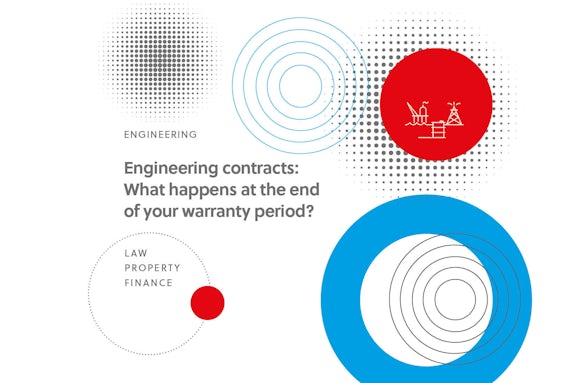What is a warranty period?
Where products are being supplied, contracts will normally have a specified warranty period. Different industries and different types of products have different durations of what is considered “standard” and of course commercial leverage always plays a part.
Your contract should be clear on how long that period is and it should be reasonable given the circumstances.
What is a defects warranty?
In very basic terms, if a defect is found within the product/installation that has been supplied under the contract, the supplier is obliged to repair or replace the product/installation if the warranty period is still active.
This is exactly the same concept as when you buy electrical goods and they come with a warranty period. Normally your washing machine breaks down 1 day after the warranty period expires!
There will often be certain caveats in relation to warranty claims. For example, if the problem has been caused by the buyer having not properly used or deployed the products, then the warranty may be invalidated.
Assuming the warranty has not been invalidated, the warranty period hasn’t expired and there is a defect in the product, then the supplier will have an obligation to repair or replace the defective product. And, of course, this is all done at the expense of the supplier. This is where limitations on liability can be crucial. See my previous blog: here.
What happens at the end of the warranty period?
The supplier can rejoice, safe in the knowledge that no defects were found and they can run off into the sunset with the full purchase price still intact? Maybe.
Maintenance Contracts
There is a significant opportunity in retaining a relationship with your clients by placing maintenance contracts that stretch beyond the warranty period.
Simply put, if something goes wrong once the warranty period has expired, you can get paid to fix it. Not only that, but there is an ongoing contract to perform routine maintenance on the product/installation as a paid-for-service, rather than as a contractual obligation with no compensation for the supplier.
The benefits are for the buyer too
It’s important to stress that this is for the benefit of the buyer too because instead of being left high and dry at the end of the contractual warranty period, there’s security to be found in the ongoing support of the original manufacturer instead of always being reactive if and when there are issues down the line. The main benefits of maintenance contracts for a buyer are:
- Cost certainty
- Reduced non-productive time
- Repairs/maintenance provided by the manufacturer who knows the product best
Conclusion
It is crucial to understand what is expected of you during the warranty period and to ensure that you are in a position to react to any warranty claims to avoid any contractual breach.
You should consider shifting to maintenance contracts rather than a clean break at the end of the warranty period.
If you would like further information on the topic discussed in this blog, please contact Calum Crighton:
Please ask me how our Virtual Counsel offering can help you
Email: ccrighton@gilsongray.co.uk Phone: 01224 011687 / 07841 920101.








